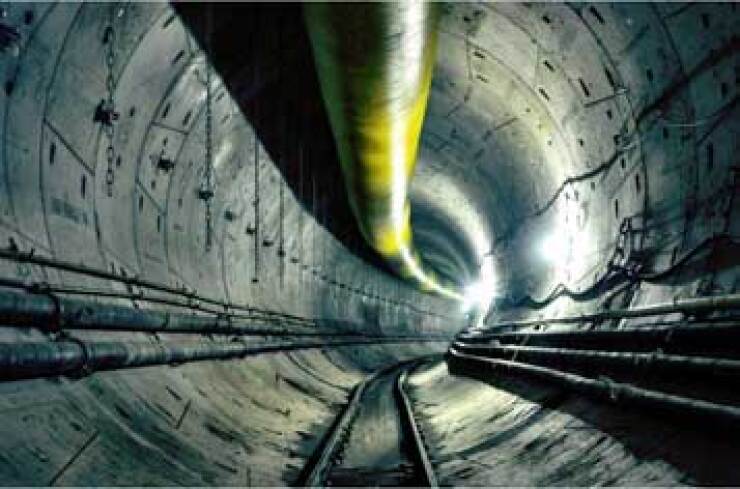

WASHINGTON — The District of Columbia Water and Sewer Authority will close on about $450 million of debt July 23, most of it in the form of a historic green century bond issuance that DC Water's chief financial officer is crediting with introducing new investors to the large, frequent issuer.
DC Water is planning to close jointly on both its taxable $350 million century bond issuance from July 10th and a $100 million tax-exempt deal planned for Tuesday. The 100-year maturity bonds are the first ever issued by a public utility, as well as the first U.S. green bond issuance to include an independent second party opinion that the bonds are green.
DC Water CFO Mark Kim was ecstatic with the transaction, which supports the utility's massive Clean Rivers Project, a $2.6 billion effort to construct tunnels that will transport sewer overflows to DC Water's Blue Plains treatment facility.
"I was delighted with the results last week," Kim told The Bond Buyer. "I think this was a phenomenal transaction."
The century bonds priced sooner than the expected date of July 14 because of a sudden favorable change in market conditions. DC Water had planned for a week-long investor road show leading up to the pricing that would include stops in Boston, New York, Chicago, and Los Angeles. But conflict in the Middle East and global financial anxiety created when the parent company of a major Portuguese bank missed a debt payment. The resulting movement of investors to safer high-quality debt made DC Water drop the trips to Chicago and Los Angeles and go to market sooner, where they borrowed the $350 million at 4.81%.
"It was just remarkable to lock in sub-5% money for 100 years," Kim said.
The deal was heavily oversubscribed, garnering more than $1 billion of orders for a planned $300 million issuance that was kicked up $50 million as a result. Kim said many of the orders came from investors who had never bought DC Water bonds before, a development he credited both the debt's 100-year maturity and to its status as a certified green bond. Life insurance companies were notable investors, Kim said, as were socially responsible investment funds, or SRIs.
"We definitely had two new pockets of investors participate in this transaction," Kim said.
Other issuers, including Massachusetts and the New York State Environmental Facilities Corp. have also credited green bonds with expanding their investor bases. Socially-conscious investing is a fast growing sector in the U.S. A 2012 report by The Forum for Sustainable and Responsible Investment showed that the number of investment funds incorporating environmental, social and governance criteria in their investment analysis and portfolio selection grew to 720 in 2012 from 55 in 1995. The assets in those funds also rose sharply, climbing to more than $1 trillion in 2012 from just $12 billion in 1995.
Kim said that SRIs were responsible for about $100 million of century bond orders, and credited the fact that DC Water tapped European research agency Vigeo to prepare an independent report detailing why the new century bonds are truly "green." The Clean Rivers Project will both improve water quality and alleviate flooding in certain low-lying areas of DC, Kim said, both of which are factors in making the bonds environmentally conscious and which Vigeo cited in its green bond opinion letter in the bonds' offering documents.
The Clean Rivers Project itself is a massive undertaking that involves, in part, the drilling of an enormous tunnel 100 feet below the Anacostia River that runs through Washington's southeast quadrant. That task is being accomplished with the help of a $30 million German-built tunnel boring machine christened "Lady Bird." The drilling rig is 26 feet in diameter. 442 feet long when fully assembled, and can drill about 100 feet per day.
The result is the kind of long-term asset that Kim said could lead other utilities with similar infrastructure to explore the option of issuing century bonds. Generations of people use long-term assets like the ones under construction at DC Water, Kim said, so it makes sense to spread out the cost over a long period of time so that the burden is equally distributed.
DC Water already had more than $ 2 billion of debt outstanding prior to the century bond deal. The 100-year bonds are senior lien debt and are rated by the three largest credit rating agencies. They are pegged at Aa2 by Moody's Investors Service, AA-plus by Standard & Poor's, and AA by Fitch Ratings. The more conventional tax-exempt revenue bonds are subordinate debt rated AA by Standard & Poor's, Aa3 by Moody's, and AA- by Fitch.





